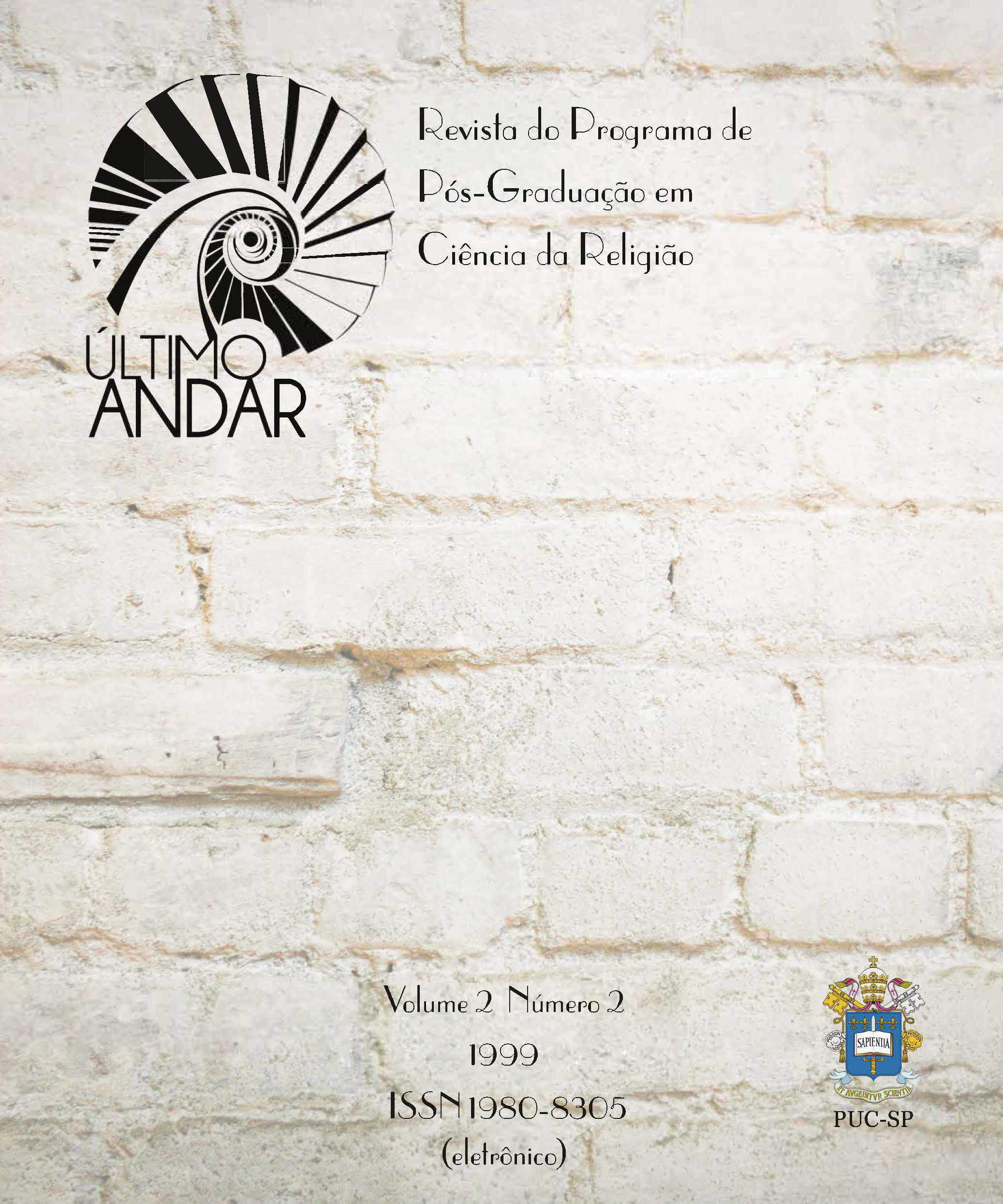CENTRAL DO BRASIL
UMA TENTATIVA DE LEITURA DA CONTINGÊNCIA HUMANA COMO ESSÊNCIA DA RELIGIÃO
Palavras-chave:
Contingência, insuficiência, religião, experiência religiosa, convenção e sagradoResumo
O existir humano parece ser uma grande viagem em busca de algo que se perdeu, dentro de uma cosmovisão de que este mundo por princípio é estranho. Em Central do Brasil, filme de Walter Salles, Dora e Josué estão viajando, à procura de algo perdido, da origem, do Pai. E esta busca se dá no processo humano da contingência, vivido como insuficiência, e revelador do estado de imanência, como estado de homogeneidade, de terror, que nada faz sentido, pois tudo parece o mesmo. Mas é na experiência religiosa que o mundo adquire sentido, que está para além do imanente, a experiência que muda o dado ontológico das coisas. Em Central do Brasil esta experiência é vivida de maneira universal.
Referências
BOWKER, John. Para entender as religiões. São Paulo, Ática, 1997.
ELIADE, Mircea. O sagrado e o profano. São Paulo: Martins Fontes, 1996. ELIADE, Mircea. Origens. Lisboa: Edições 70, 1989.
FURTER, Pierre. A dialética da esperança. Rio de Janeiro: Paz e Terra, 1974.
Downloads
Publicado
Como Citar
Edição
Seção
Licença
Copyright (c) 2024 Ricardo Salgado Gonçalves

Este trabalho está licenciado sob uma licença Creative Commons Attribution-NonCommercial 4.0 International License.
Autores que publicam nesta revista concordam com os seguintes termos:
- Autores mantém os direitos autorais e concedem à revista o direito de primeira publicação, com o trabalho simultaneamente licenciado sob a Licença Creative Commons Attribution que permite o compartilhamento do trabalho com reconhecimento da autoria e publicação inicial nesta revista.
- Autores têm autorização para assumir contratos adicionais separadamente, para distribuição não-exclusiva da versão do trabalho publicada nesta revista (ex.: publicar em repositório institucional ou como capítulo de livro), com reconhecimento de autoria e publicação inicial nesta revista.
- Autores têm permissão e são estimulados a publicar e distribuir seu trabalho online (ex.: em repositórios institucionais ou na sua página pessoal) a qualquer ponto antes ou durante o processo editorial, já que isso pode gerar alterações produtivas, bem como aumentar o impacto e a citação do trabalho publicado.


